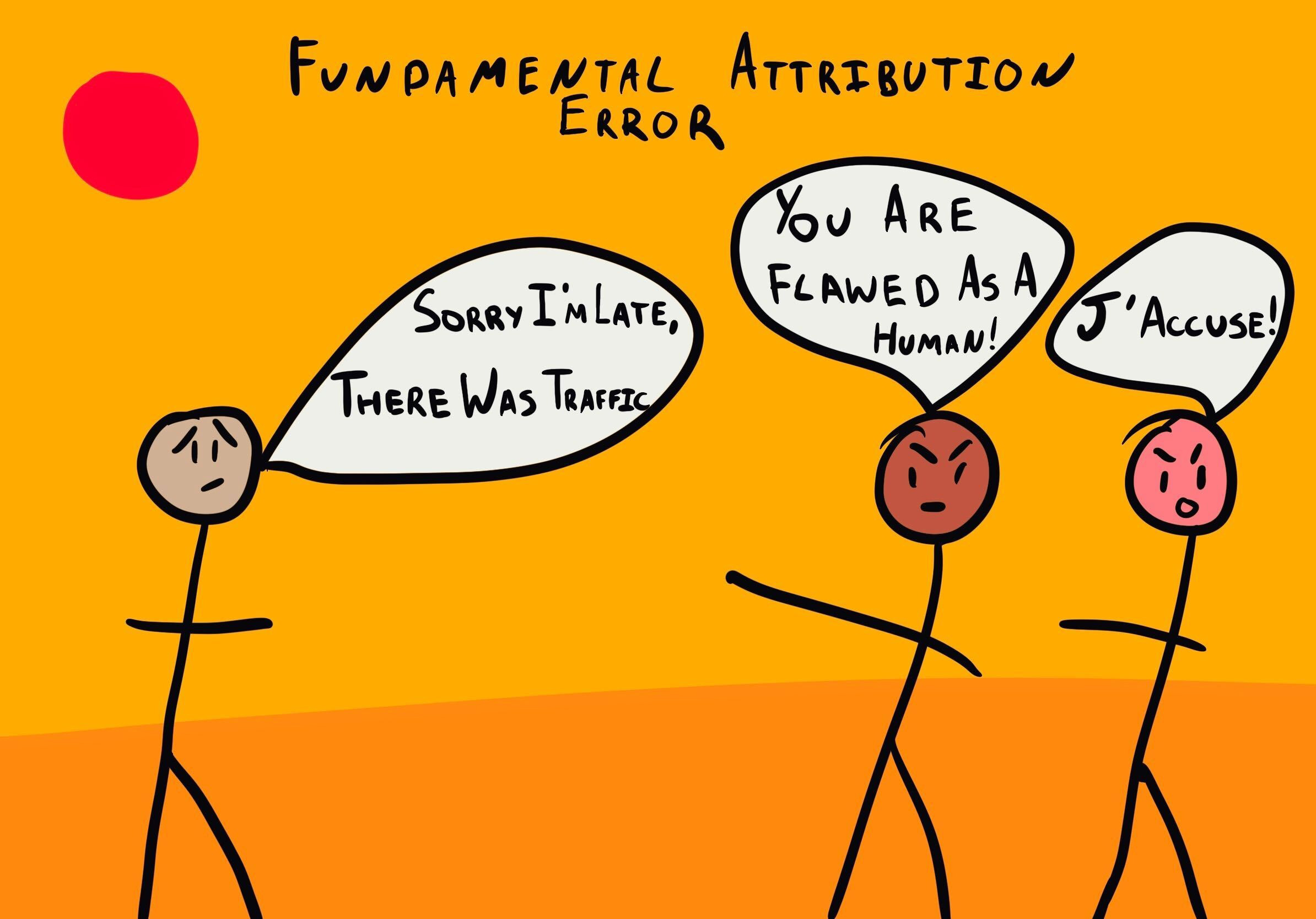The fundamental attribution error, also known as the correspondence bias, is a cognitive bias that involves the tendency to attribute the behavior of others to their internal characteristics or personality traits, while attributing one’s own behavior to external factors or situational influences. In simpler terms, people often overemphasize the role of personal traits when explaining the actions of others and underemphasize the impact of the situation or context.
Explanations:
The fundamental attribution error is rooted in our natural tendency to focus on individuals as the primary causes of their own behavior, even when external factors might have a significant influence. When we observe others, we have limited access to their internal thoughts and feelings, which can lead to attribution errors.
Examples:
Traffic Incident: If someone cuts you off in traffic, you might assume they are a rude or aggressive driver. However, if you accidentally do the same thing, you might attribute it to being in a hurry or distracted.
Job Performance: When a colleague makes a mistake at work, you might perceive it as a lack of competence or diligence. Yet, if you make a similar mistake, you might attribute it to a heavy workload or lack of clear instructions.
Social Behavior: If you witness someone being quiet at a social gathering, you may think they are introverted or unfriendly. However, if you find yourself in the same situation, you might explain your own behavior as feeling tired or out of place.
Solutions:
Consider Situational Factors: When evaluating the behavior of others, consciously consider the role of situational factors, context, and external pressures that may have influenced their actions.
Empathize: Practice empathy by trying to understand the challenges and pressures individuals face in various situations. Realize that behavior often results from a combination of internal and external factors.
Reflect on Bias: Regularly reflect on your own biases and attribution errors. Recognizing these biases can help you make more accurate judgments.
Open Communication: Engage in open and non-judgmental communication with others to gain a deeper understanding of their motivations and thought processes.
Addressing the fundamental attribution error requires a conscious effort to consider the interplay between internal and external factors when evaluating the behavior of others. This can lead to more empathetic and fair assessments.
